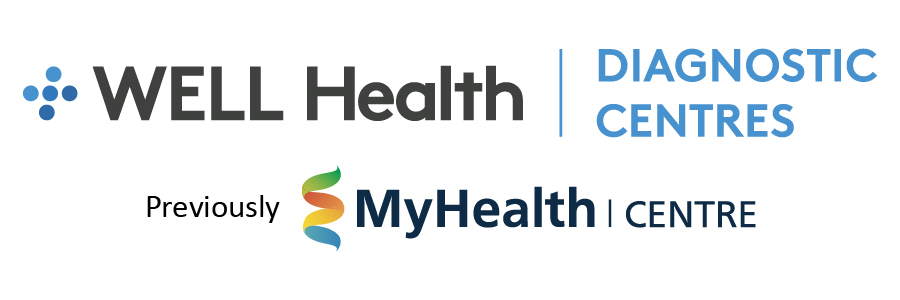NEWS & INSIGHTS
Comprehensive Guide to Heart Health: Symptoms and Tests

It is essential to take care of your heart health. Data from Statistics Canada, released on 4 December 2024, show that diseases of the heart were the second leading cause of death in 2023. Choose to know your health status with diagnostic tests offered by WELL Health Diagnostic Centres. It will give you peace of mind or the tools to take on a health challenge.
In this guide, we discuss the difference between a heart attack and cardiac arrest and learn more about silent heart attacks and cholesterol. We also explore healthy heart lifestyle changes and the signs indicating you need a heart health check-up.
Heart Attack vs Cardiac Arrest: Understanding the Difference
There is a distinct difference between a heart attack and a cardiac arrest event. Most heart attacks are preventable if you maintain a healthy lifestyle and manage risk factors such as blood pressure and cholesterol. Cardiac arrest, however, can happen to anyone at any age, often without warning.
What happens during a cardiac arrest event? The heart suddenly stops beating, and blood stops flowing to the brain and other vital organs. And what about a heart attack? It occurs when blood flow to the heart is restricted due to blocked coronary arteries and the heart muscle not getting oxygen.
Are you concerned about your heart health? You need a cardiology consultation at a WELL Health Diagnostic Centre near you or an online consultation that is just a click away. It is usually requested by your family doctor, general internist, or another specialist. The consultation offers diagnosis and treatment for your heart condition as well as suggested lifestyle changes.
The Risks and Dangers of Silent Heart Attacks
Coronary (ischemic) heart disease is the most common condition affecting the heart, and symptoms present themselves differently for men and women. Some people will have a heart attack, but they don’t realize it. It is called a silent heart attack or silent ischemia.
Silent heart attack symptoms might not be immediately associated with a heart attack, as they could include flu-like symptoms, stiff muscles in the chest or upper back, indigestion, fatigue, or unexplained body pain. Because people don’t realize they had a heart attack, they are less likely to seek treatment, with potentially severe consequences. You might be at risk if any of the following describes you:
- Chronic stress
- High blood pressure
- Elevated cholesterol levels
- Overweight
- Limited physical activity and exercise routine.
You can have more than one silent ischemia event. The cardiology services at WELL Health Diagnostic Centres include diagnostic tests you require to identify a possible silent heart attack.
Correlation Between Cholesterol and Heart Disease
Cholesterol is a fat naturally found in the blood, but our eating habits increase its levels. There are generally no symptoms to indicate you have high cholesterol, and a blood test is the only way to know your levels. Is there a link between cholesterol and heart disease? There is definitely a link, as it’s a significant risk factor for heart attacks, strokes, and coronary heart disease. The great news is that it is controllable by managing our diet.
There are two main types of blood cholesterol:
- HDL is a high-density ‘good’ cholesterol because it removes excess cholesterol from the body.
- LDL is a ‘bad’ low-density cholesterol. It forms plaque or fatty deposits on artery walls, blocking blood flow to the brain and heart.
People with high cholesterol levels in the family have an increased risk of early heart disease. Look after your heart health. Speak to a physician and ensure you treat your cholesterol early.
Healthy Heart Lifestyle Changes: Diet, Exercise and More
What healthy heart lifestyle changes should you make to lower your blood pressure and cholesterol levels? The reality is that even the fittest athlete can have high cholesterol, which leads to a heart attack. That should not prevent us from looking after our heart health with exercise and quality food.
The Heart and Stroke Foundation has several suggestions for lowering your cholesterol naturally. Exercise at least 25 minutes daily, don’t smoke, maintain a healthy weight, and eat a healthy diet. A diet for heart health includes home-cooked meals. Fill half your plate with fruit and vegetables, limit your meat and poultry sizes, and include fish several times a week. Drink water instead of sugary drinks and 100% fruit juice.
Are your cholesterol levels still high despite exercise and healthy meals? Speak to your doctor about medications. Are you concerned about your blood pressure? WELL Health Diagnostic Centres offer blood pressure monitoring services.
When to Get a Health Check-Up: Signs and Tests
The Canadian Heart Patient Alliance, a patient-led organization, advises men to start routine cholesterol screening blood tests at forty and women at fifty. See your doctor as soon as possible when you experience any of the following signs and symptoms:
- Heart palpitations
- Rapid pulse
- Chest pain
- Shortness of breath
- Dizziness, confusion, or lightheadedness
- Abnormal fatigue, weakness, or a decline in your ability to exercise.
What are the heart health check-up tests we need other than blood pressure and cholesterol? Consider the following:
- Electrocardiogram (ECG). Sensors (electrodes) are attached to your chest to record your heart’s electrical signals.
- Exercise Stress Test (GXT). Your heart rhythm, blood pressure, and breathing are tested while you walk on a treadmill.
We use state-of-the-art technology for cardiac diagnostics at WELL Health Diagnostic Centres, including electrocardiograms (ECG), exercise stress tests (GXT), stress echocardiograms, and vascular ultrasounds.
WELL Health Diagnostic Centres are present at more than forty accredited locations in Ontario and deliver quality patient care with compassion and integrity. Our services require a signed requisition from a referring Ontario healthcare provider. Contact us when you need heart health diagnostic tests.
